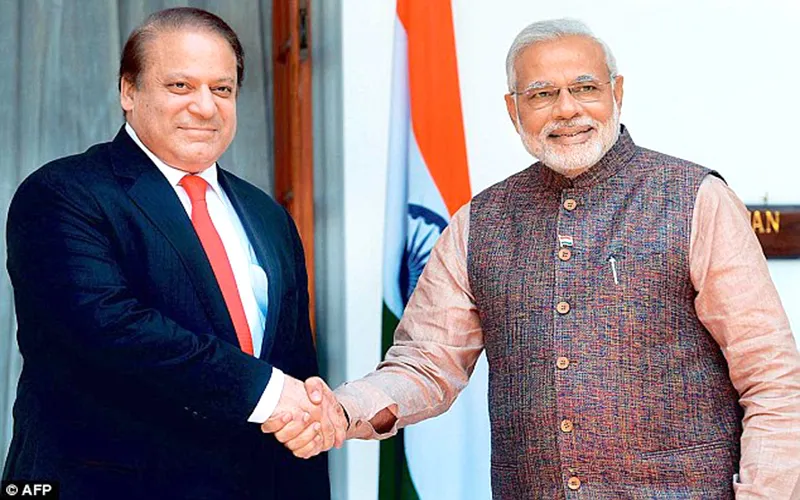India's decision to call off Foreign Secretary-level talks with Pakistan because the latter insisted in going ahead with consultations with separatist leaders from Jammu & Kashmir, is a new twist in the old India-Pakistan standoff.
It is new because in the past Islamabad has routinely held such consultations on the eve of bilateral dialogues for no other reason than to show its constituencies back home that Kashmiri interests had a primacy in Pakistan's India policy.
Indeed, the Pakistan Foreign Office response noted that the meetings were "a longstanding practice" and were aimed at facilitating "meaningful discussions on the issue of Kashmir."
New Delhi went along with this fiction, knowing fully well that the separatists - Hurriyat leaders like Shabbir Shah, Syed Ali Shah Geelani or Yasin Malik - had little traction in the Valley.
But now, by insisting that any dialogue with the Hurriyat is tantamount to interference in India's internal affairs and, as such, unacceptable to India, the Modi government has upped the ante.
Maybe Pakistan was testing the new government, if so, they have got a clearer idea of what it is all about.
Narendra Modi has his own compulsions. He has come to power with a promise of taking a different and tougher approach towards Pakistan. So, it cannot be business as usual for him.
Why did Pakistan choose to make this provocative move towards the Hurriyat right now? The meetings may have been a longstanding practice, but that was not the only message coming out of Islamabad.
In the last two weeks, there have been almost continuous and egregious violations of the ceasefire. Taken together, it would suggest that there are forces in Pakistan that do not want any change in Pakistan's ties with India. It does not take a genius to figure out who those forces are.
The answer to this question probably lies in Pakistan's internal politics and turmoil. Nawaz Sharif, who defied hardliners to attend Modi's swearing in, had two goals in mind after sweeping the Pakistani elections to become prime minister in 2013.
First, to rein in the Army, and second, to pick up the threads of peace that were dropped in 1999 when he was overthrown by Musharraf.
In his present circumstances, where Islamabad is being besieged by Imran Khan's Pakistan Tehreek-e-Insaf and the religious leader Tahir al Qadri, he has chosen to make a quick deal with the Army.
But New Delhi, having sent a tough message, will hopefully, be working along a coherent policy perspective. Relations with Pakistan are too important to be left hostage to knee-jerk reactions.
Courtesy: Mail Today
The views expressed above belong to the author(s). ORF research and analyses now available on Telegram! Click here to access our curated content — blogs, longforms and interviews.

